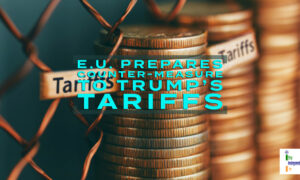
Many European nations have written to European Council and European Commission over the huge disparities in vaccine allocation
While Europe is still struggling to cope up with supply shortfall caused by delay in delivery of AstraZeneca’s Coronavirus (COVID-19) vaccine, a large number of European nations have written to European Council and European Commission over the huge disparities in allocation of vaccine.
The letter has been addressed to the President of European Commission – Ursula von der Leyen and the President of European Council – Charles Michel. The letter signed by Austria, Bulgaria, Croatia, the Czech Republic, Latvia and Slovenia has called for a debate at leaders’ level.
Taking it to twitter, the Chancellor of Austria – Sebastian Kurz tweeted (translate from German), “We must now ensure that, in the interests of European solidarity, all EU member states receive the same amount of vaccine per capita at the same time. I have the same thing with the Portuguese President-in-Office of the Council @antoniocostapm discussed in a phone call.” Original tweet in German:
Wir müssen nun sicherstellen, dass im Sinne der europäischen Solidarität alle EU-Mitgliedsstaaten zur gleichen Zeit gleich viel Impfstoff pro Kopf erhalten. Das habe ich auch mit dem portugiesischen Ratsvorsitzenden @antoniocostapm in einem Telefonat besprochen.
— Sebastian Kurz (@sebastiankurz) March 13, 2021
The official twitter handle of Government of Slovenia tweeted,
Unequal treatment is totally unacceptable. #EU has enough power and resources to provide vaccines for all citizens above 18 within first half of the 2021. @JJansaSDS @SebastianKurz @BoykoBorissov @krisjaniskarins in @AndrejBabis pic.twitter.com/jPCHA7UDY5
— Slovenian Government (@govSlovenia) March 13, 2021
The Prime Minister of Latvia – Arturs Krisjanis Karins tweeted,
Together with my colleagues I call for solidarity in distribution of #COVID19 vaccines across the EU. @eucopresident @vonderleyen https://t.co/3367suCB5f
— Krišjānis Kariņš (@krisjaniskarins) March 13, 2021
These 5 nations believed that if the principle of proportionality was not observed, it could lead to very big differences among the countries, with some being capable of reaching herd immunity in a matter of weeks, while others will fall behind significantly.
However, the European Commission states that there has been no disparity and it has been fair in its distribution process.
Meanwhile, AstraZeneca has confirmed to member states that it will only deliver 30 million doses in the first quarter of the year, which is less 40 million less than what was expected. That number was itself a big cut from the 100 million or more shots the European Union (E.U.) had originally expected by the end of March. The AstraZeneca will no deliver only 70 million doses in the second quarter.
The current dispute is coalescing around the distribution of an accelerated delivery of 4 million doses of Pfizer – BioNTech’s vaccine. While all E.U. countries have the right to pro-rata population-based shares of every vaccine bought by the European Commission, they can opt to buy more or less of each jab as they wish. Any unused shares can then be purchased by other member states.
Earlier, a lot of member states believed AstraZeneca’s vaccine would be better than Moderna and BioNTech – Pfizer’s vaccine. Hence, they had placed orders for AstraZeneca. Now, with AstraZeneca failing to live upto its commitment, the member states are in soup.







